Click here if you are having trouble viewing this message.
|
|
|
|
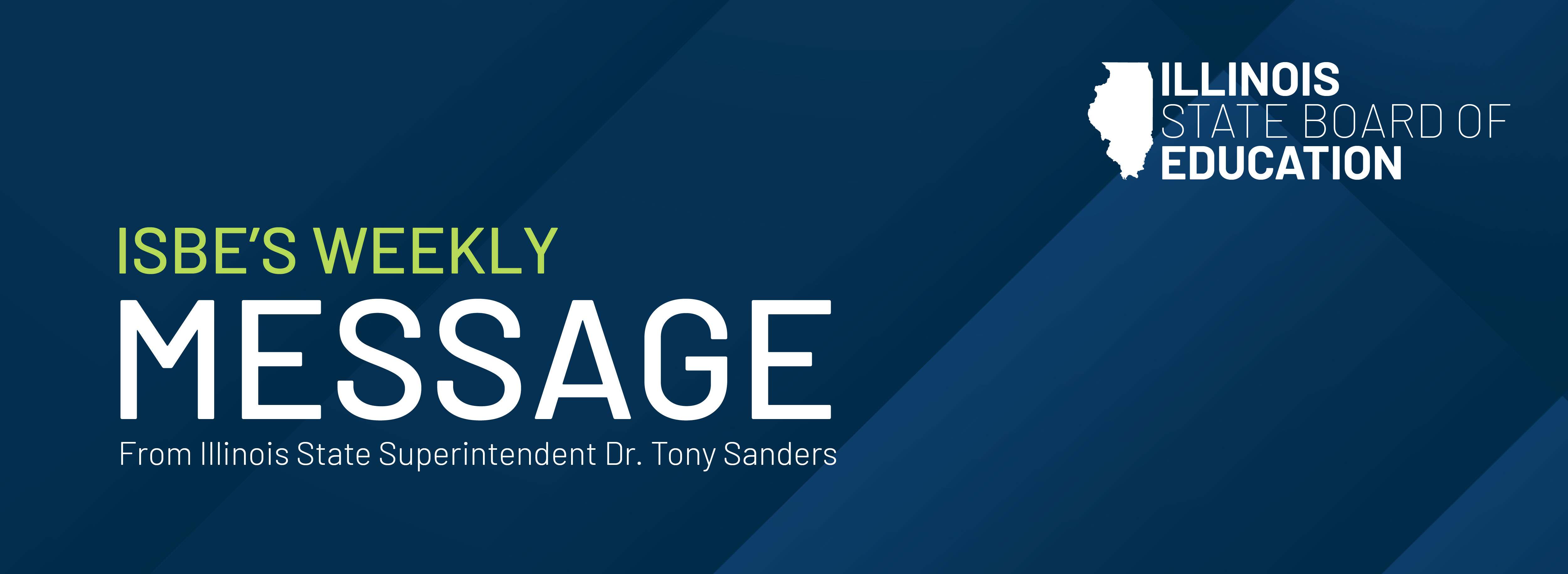
|
APRIL 15, 2025
|

|
|
|
|
“Hibachi Boy,” a chef and entrepreneur, recently spent a day with the Family and Consumer Science class at Carlinville High School to teach them new skills and the value of grit. His visit was part of FCS teacher Ashley Mullens’ ongoing work to broaden her students’ horizons and prepare them for life after high school.
|
|
|
|
|
|
RESOURCE ALLOCATION REVIEW TOOLKIT
|
|
|
|
Dear Colleagues:
Today we are publishing a toolkit to support all school districts in conducting Resource Allocation Reviews. This toolkit is the next step in ISBE’s work to deepen local dialogue about how dollars can best serve students. A Resource Allocation Review is a data-informed conversation between key local stakeholders, including district and school leaders, designed to facilitate productive local dialogue about aligning funds to students’ needs.
The new toolkit includes a discussion protocol, rubric, supporting research, and a unique data dashboard. The dashboard presents new visualizations that encourage inquiry about resource allocation patterns and practices. No single visual or data set can possibly provide the whole story about resource allocation and student achievement. That's why our guide includes helpful context on data sources and provides questions to support careful analysis. These resources are intended to initiate discussion about how the local resource allocation system supports improvement.
This effort began with the federal Every Student Succeeds Act (ESSA) requirement that all school districts report per-pupil expenditure data for each public school to ISBE, starting with fiscal year 2019. The Site-Based Expenditure Reporting data appears on the Illinois Report Card. ESSA also requires that states collaboratively review resource allocation patterns with districts that operate a significant number of schools identified for improvement via the state’s accountability framework. ISBE uses the Site-Based Expenditure data by integrating it into our Resource Allocation Review program.
ISBE works with a select number of districts each year to complete Resource Allocation Reviews. School districts are eligible for a Resource Allocation Review every four years, in alignment with the school improvement cycle. Making our program materials available to all districts now will enable local district teams to lead a similar review process. As we approach the busy budget and planning season, a district-led Resource Allocation Review can support varied goals, such as:
-
Identifying and developing strategies to address resource inequities within School Improvement Plans,
-
Evaluating and improving existing resource allocation practices, and
-
Considering the alignment between strategic goals and spending.
I encourage all district leaders to explore the toolkit and how these resources can maximize the impact of school funding for students.
All my best,
Tony
Dr. Tony Sanders
State Superintendent of Education
|
|
|
|
|
|
|
|
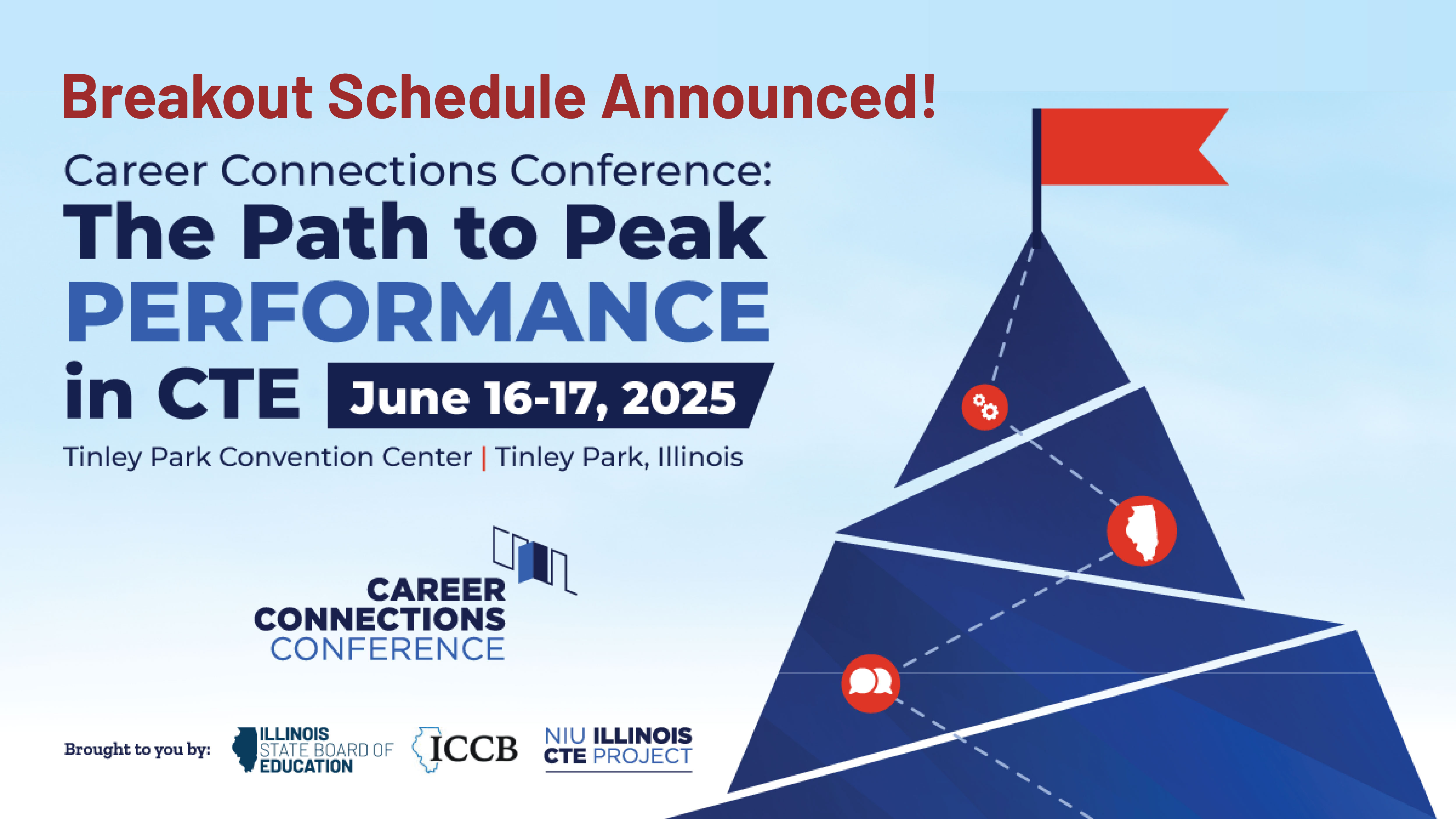
|
NEW! CAREER & TECHNICAL EDUCATION
Career Connections Conference Breakout Session Schedule Now Available
We’re thrilled to announce that the breakout session schedule for the upcoming ISBE Career Connections Conference is now available! Explore the dynamic lineup of breakout sessions designed to inspire, inform, and empower Career and Technical Education (CTE) professionals across Illinois.
Whether you are a classroom educator, instructional coach, school counselor, or CTE leader, there's something for everyone. Sessions will cover a wide range of topics, including innovative instructional strategies, career pathway development, industry-aligned practices, and student engagement techniques.
Questions? Contact Betsy Westergreen at ewestergreen@niu.edu.
|
|
|
|
|
|
NEW! FINANCE
Updated Functionality in ISBE eGrants Systems
ISBE has implemented an update to its electronic Grant Management System (eGMS) based upon revisions to the Code of Federal Regulations. The system now allows grantees to take advantage of increased flexibilities in indirect cost for both state and federal grants. Grantees are required to submit a grant amendment to increase both the indirect cost rate for those grantees with a de minimis rate and to increase the amount of contractual costs that may be counted toward the indirect cost base. As a reminder, all grant amendments are due 30 days prior to the end of the project, typically May 31 for a June 30 end date and Aug. 1 for an Aug. 31 end date.
The U.S. Office of Management and Budget updated the Uniform Administrative Requirements, Cost Principles, and Audit Requirements for Federal Awards on Oct. 4, 2024. Some of the changes increased the de minimis indirect cost rate from 10 percent to 15 percent and the amount of contractual expenses that can be included in the indirect cost calculation from $25,000 to $50,000.
This change only applies to projects with a start date on or after Oct. 1, 2024. Projects with a pre-Oct. 1, 2024, start date may not access the higher indirect cost rate and increase to the base.
The increased de minimis rate and increase to the base will be in effect for all fiscal year 2026 grants.
|
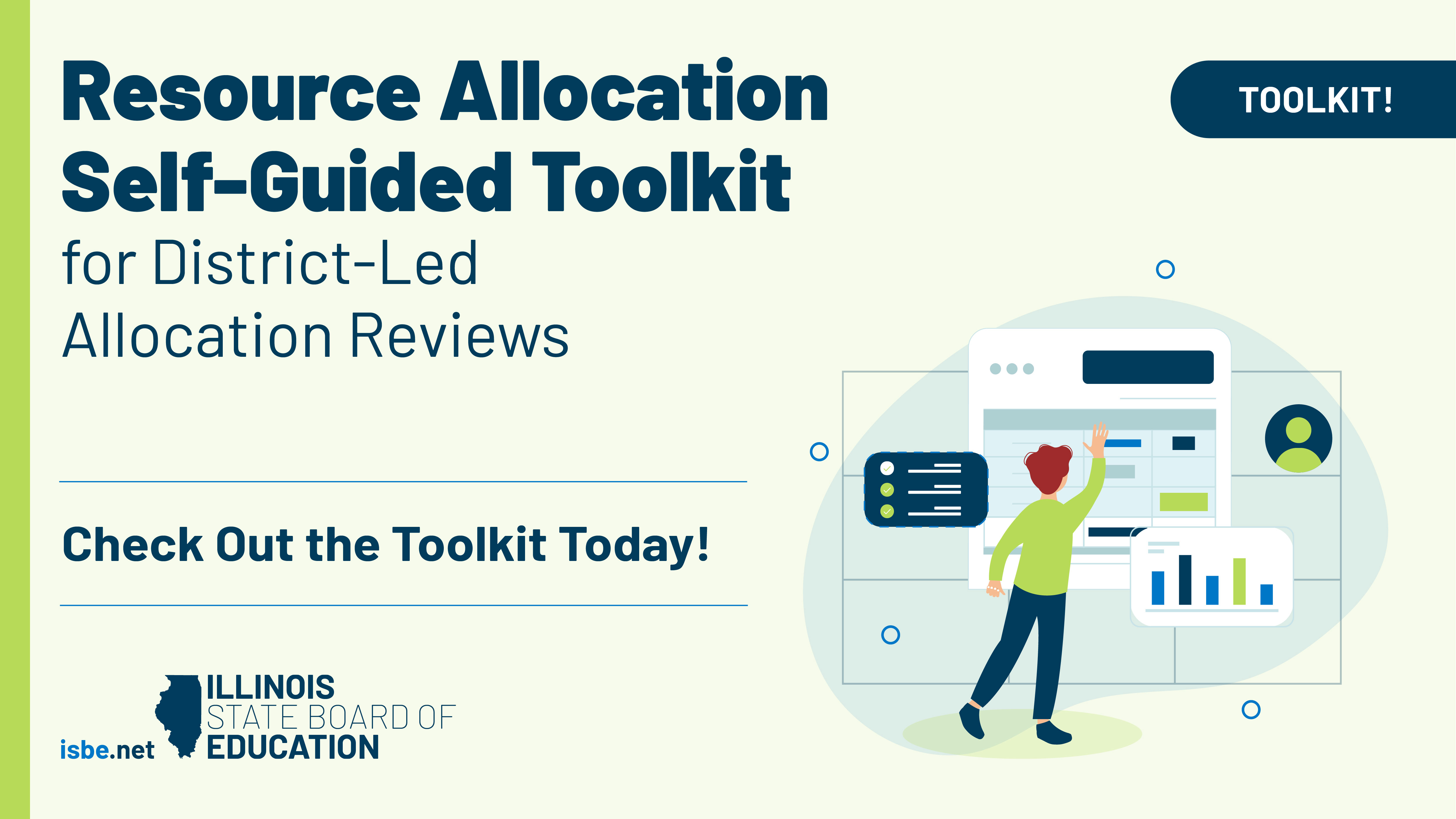
|
New Toolkit for District-Led Resource Allocation Reviews
ISBE has published the Resource Allocation Self-Guided Toolkit, which is intended to support local district teams in completing district-led Resource Allocation Reviews (RARs). The Every Student Succeeds Act requires State Education Agencies (SEAs) to conduct RARs with districts that operate a significant number of schools identified for school improvement status via the Illinois Accountability System (§1111(d)(3)(A)(ii)). These RARs provide an opportunity for district and school leaders to collaboratively explore current resource allocation patterns and practices. The new toolkit makes ISBE’s RAR program materials, including a discussion protocol, rubric, supporting research, and a unique data dashboard, available to all districts. These materials may be used to support varied goals, such as identifying strategies to address resource inequities or evaluating existing resource allocation practices. The toolkit and corresponding RAR Dashboard can now be found on ISBE’s new RAR webpage.
|
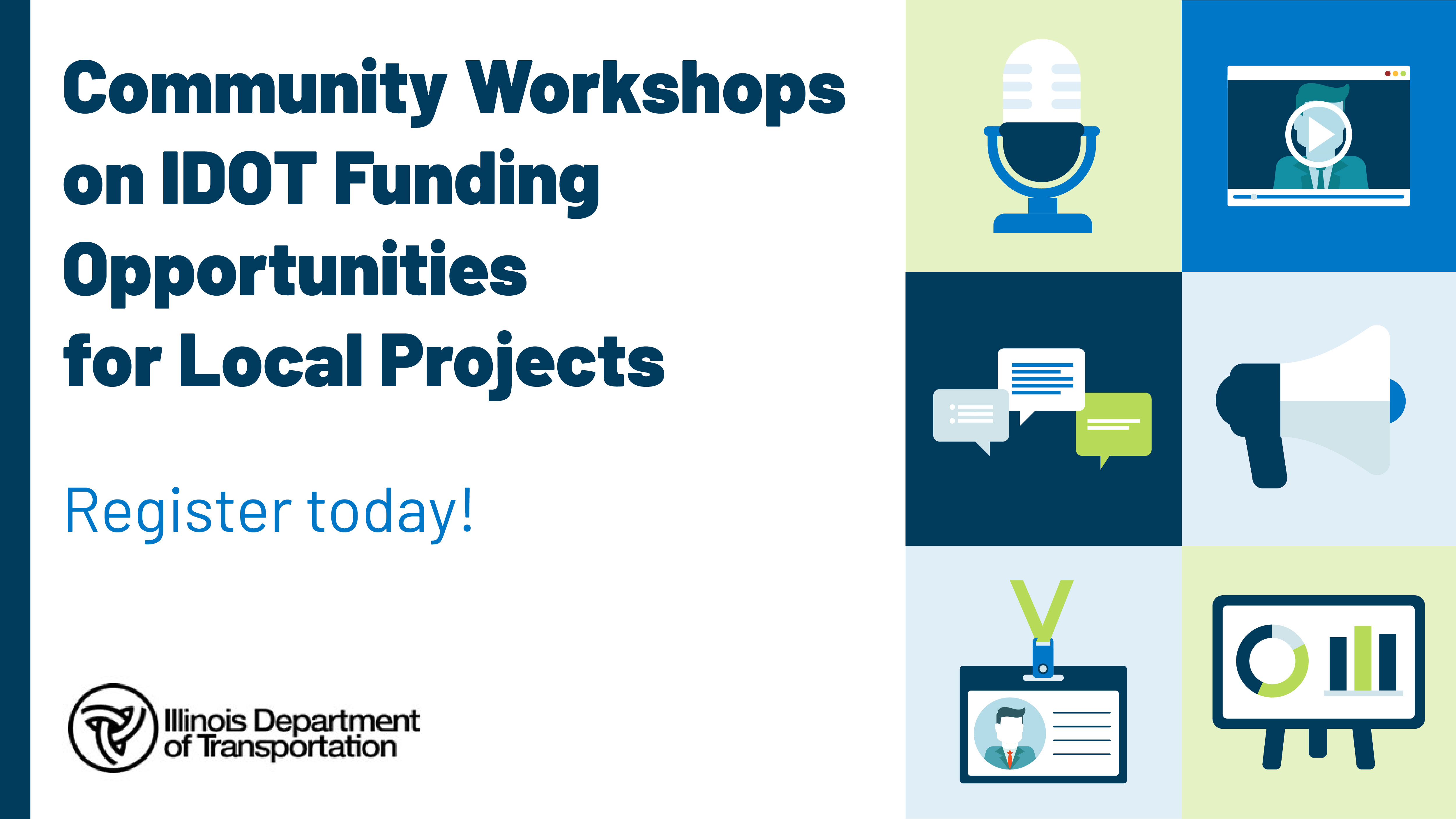
|
Upcoming Community Workshops on IDOT Funding Opportunities for Local Projects
The Illinois Department of Transportation (IDOT) is hosting 18 workshops throughout the state to help local governments and communities learn about and apply for funding opportunities. The Special Programs Assistance Conferences (SPAC) are designed to help potential grantees take part in the department’s Economic Development Program, Illinois Transportation Enhancement Program, and Safe Routes to School Program.
The events, scheduled into June, are geared to help local stakeholders understand competitive funding programs offered by IDOT, identify projects they can submit for consideration, and provide instruction on how to craft applications.
Registration information and date/time/location for each session are available on the IDOT SPAC webpage.
|
FY 2025 Site-Based Financial Reporting: Updates to Required Exclusions
Beginning with the FY 2025 reporting period, ISBE’s Site-Based Financial Reporting guidance will require that all Object 500 expenditures be captured in the total exclusions reported by each district in the Site-Based Expenditure Report (SBER). Previously, ISBE’s guidance required that Object 500 expenditures within Fund 10 be included in the per-pupil calculations. Object 500 expenditures in all other funds will continue to be excluded. This change should also be reflected in any School-Level Financial Survey (SLFS) data submitted to ISBE.
Expenditure accounts included in SBER per-pupil calculations and SLFS figures are meant to capture ongoing, normal-course expenditures for instruction and operation. Costs for capital projects, debt, adult education, and community services are therefore reported within total exclusions. ISBE has made minimal changes to its exclusion guidance since the initial 2019 reporting year. The update to guidance for Object 500 expenditures will bring ISBE’s collection process into greater alignment with the U.S. Department of Education’s reporting guidelines and ensure consistency between SBER, SLFS, and other federally required school finance reports. Based on an analysis of available financial data for fiscal year 2024, the impact on district per-pupil expenditures would be minimal (e.g., less than 1% on average).
The FY 2025 Site-Based Financial Reporting period will open on July 1. Site-based expenditures are collected through Aug. 15; edits to submissions may be made through Aug. 29. Consistent with FY 2024, SLFS data may be submitted through Nov. 3.
Additional resources, including an updated guidance document, webinar, and tutorial videos, will be available later this spring. Questions may be directed to site-based@isbe.net.
FY 2025 Project End Date Extension Requests and Final Budget Amendments
Many state and federal grant projects are approaching a June 30 end date for obligating FY 2025 grant funds. All state and federal project end date extension requests and final budget amendments must be received by ISBE no later than 30 calendar days prior to the end date of the project.
As a reminder:
-
An end date extension past June 30 is not needed for regular term staff salaries paid on a 12-month salary schedule.
-
An end date extension past June 30 is not needed to pay obligations (e.g., purchase order for supplies) incurred June 30 or prior.
-
An end date extension past June 30 is needed for new activities and obligations incurred July 1 or later (e.g., summer school, professional development).
Final amendments for state and federal grants with a project end date of June 30, 2025, must be received by ISBE no later than May 31. Amendments for grants with a project end date of Aug. 31, 2025, must be submitted by Aug. 1. However, budget increases for FY 2025 state-funded grant projects must be received by June 30, even if the project end date has been extended. The deadline for grant applications in eGMS also is referenced on the “Program Overview” page under “Amendment Due Date.” Please share this important information with any staff responsible for grant management at your district/entity.
|
|
|
|
|
|
NEW! LEGAL
Sharing Additional Documentation - Title VI Certification
Last week, Dr. Sanders shared Illinois’ response to the U.S. Department of Education (ED) Office of Civil Rights “Request for Certification” letter in which it demanded that all states and Local Education Agencies (LEAs) attest to compliance with Title VI. The ED letter also sought assurance that states and LEAs are not engaged in “illegal DEI.” The National Education Association is currently engaged in litigation with ED, and this document was filed in the National Education Association v. U.S. Department of Education case. Pursuant to the document, ED is required by the court to distribute this to SEAs for further distribution to LEAs. ISBE distributed its official notification to LEAs via email on April 11.
Please note that nothing further is required of LEAs at this time. ISBE’s response to ED continues to be the agency’s position, and ISBE will not be requesting or compiling attestations from LEAs.
|
|
|
|
|
|
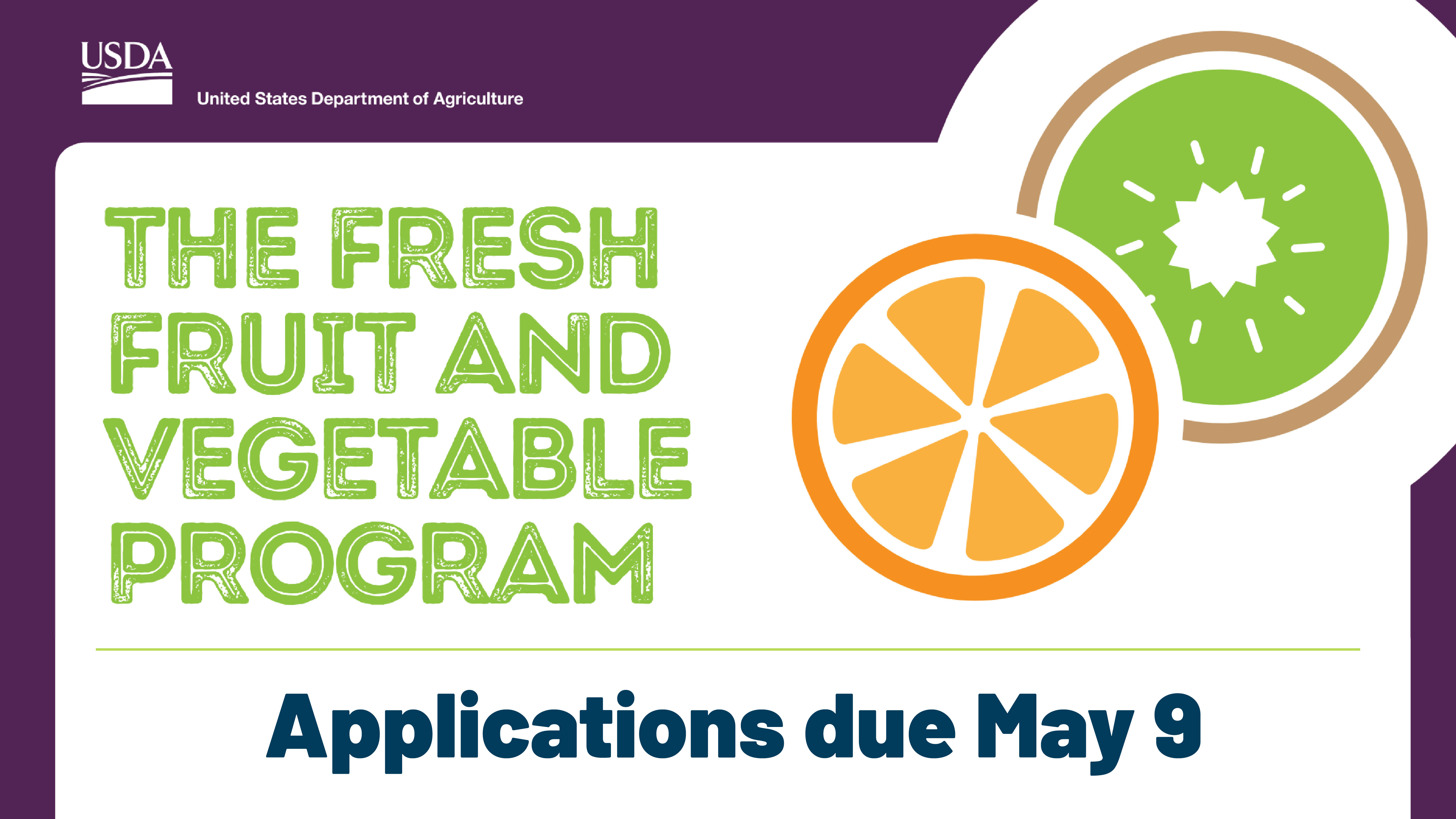
|
NEW! NUTRITION
SY 2025-26 Fresh Fruit and Vegetable Program Applications Due
May 9
ISBE is accepting applications for eligible schools to participate in the U.S. Department of Agriculture’s Fresh Fruit and Vegetable Program in school year 2025-26.
The USDA Fresh Fruit and Vegetable Program (FFVP) is a federally assisted program providing free fresh fruits and vegetables to children at eligible elementary schools during the school day at a time outside of the meal periods. The goal of FFVP is to introduce children to fresh fruits and vegetables, to include new and different varieties, and to increase overall acceptance and consumption of fresh, unprocessed produce among children. FFVP also encourages healthier school environments by promoting nutrition education.
FFVP applications are due May 9. Sponsors with eligible schools that wish to participate should refer to the application instructions. Contact Emily Durbin at edurbin@isbe.net or 217-782-2491 if you have questions.
|
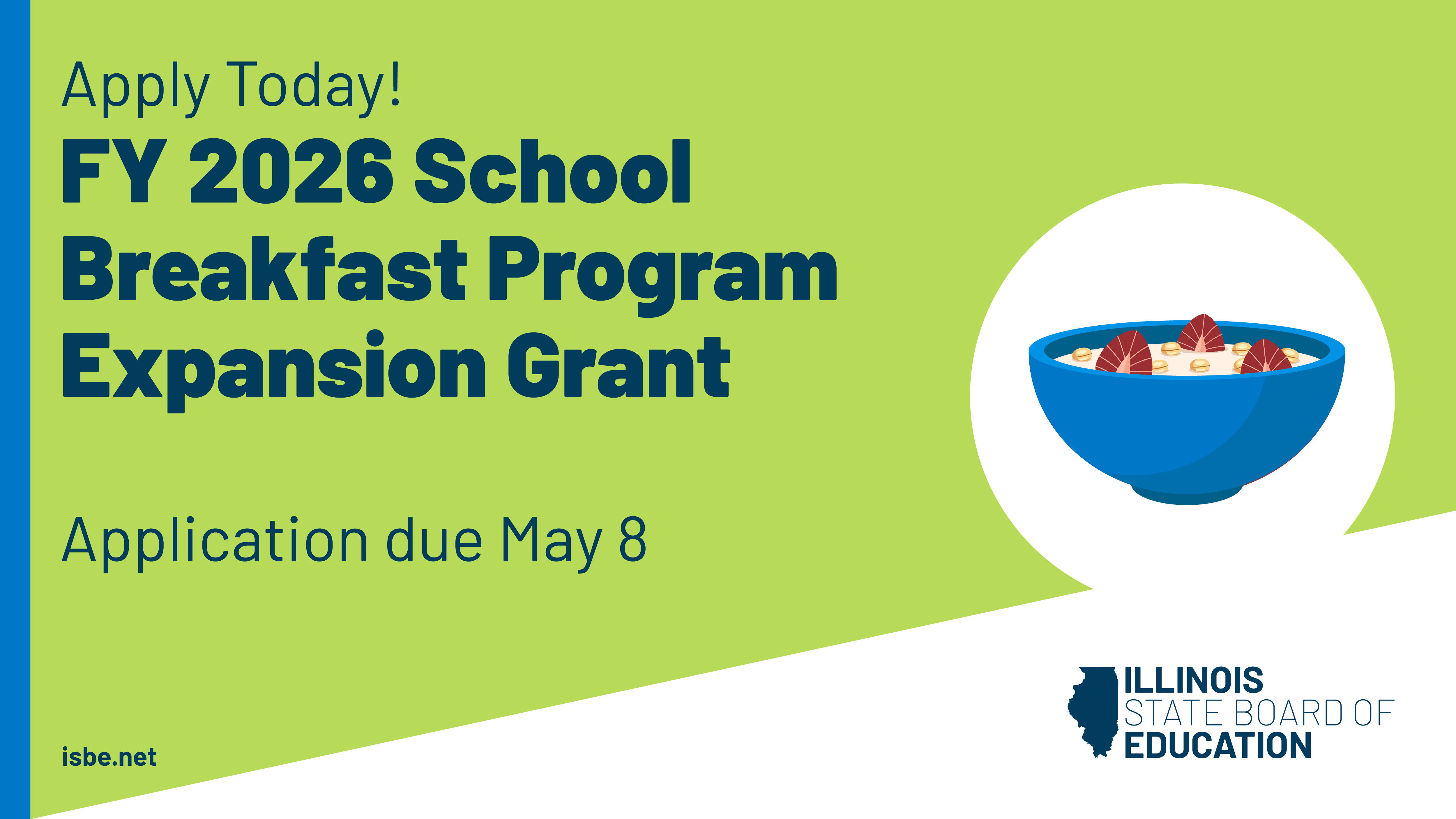
|
Apply for the FY 2026 School Breakfast Program Expansion Grant
ISBE is seeking applications for the FY 2026 School Breakfast Expansion Grant. The key objectives of the School Breakfast Program Expansion Grant are:
-
Improve quality and nutritional standards of breakfast food served using less sodium and sugar and serving a variety of protein sources, whole grains, milk, fruits, and vegetables.
-
Establish, maintain, or expand a School Breakfast Program within qualifying schools.
-
Increase School Breakfast Program participation in qualifying schools.
Eligible applicants of this funding opportunity are LEAs in Illinois that are also an approved School Food Authority with a qualifying school or group of qualifying schools. A list of schools that qualify is available to download on ISBE’s School Breakfast Program webpage, where you can also find links to the Notice of Funding Opportunity/Request for Proposals and the grant application. The application deadline is 4 p.m. May 8.
|
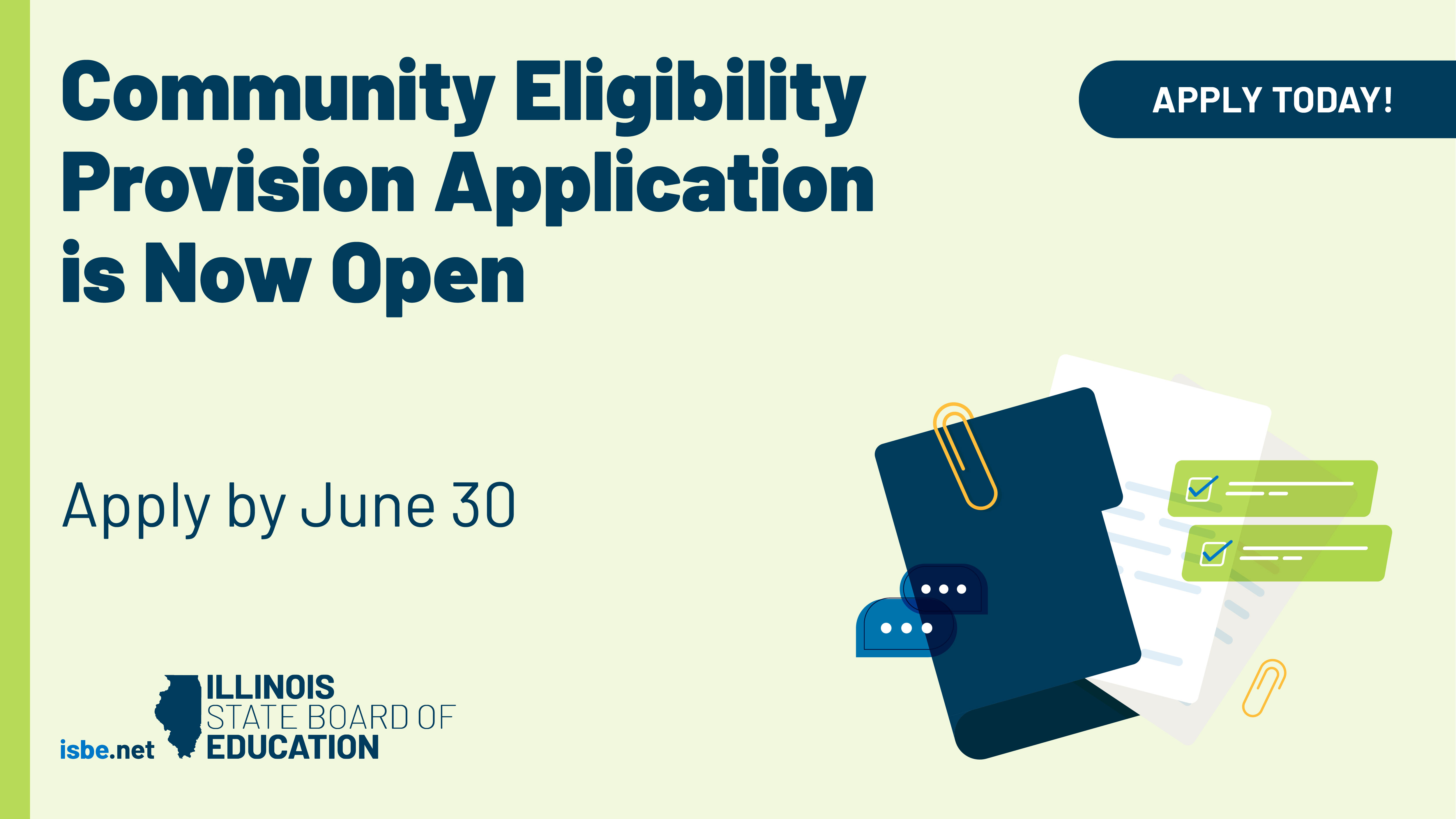
|
CEP Application Period Open
The school year 2025-26 Community Eligibility Provision (CEP) application is open until June 30. CEP is a non-pricing meal service option for schools and school districts in low-income areas. CEP allows the nation’s highest-poverty schools and districts to serve breakfast and lunch at no cost to all enrolled students without collecting Household Eligibility Applications. The federal reimbursement for CEP-approved sites meals are calculated by student level data for a school or group of schools.
The recording and PDF slides of the “Community Eligibility Provision for Illinois Schools – Overview and Application Process” webinar are available on the CEP webpage, under the “Application Process” dropdown. The webinar provides an overview of the CEP requirements as well as the online CEP Evaluation and Application Module.
The Quick Reference Guide: CEP Evaluation & Application Module is available to assist with the application process. Visit the CEP webpage for more information, including evaluation worksheets, outreach data, and more.
|
|
|
|
|
|
DATA STRATEGIES & ANALYTICS
Entity Profile System 2026 Webinar
Join us for an Entity Profile System webinar at 10 a.m. on May 1. The webinar will cover:
-
How to update and verify your organization’s information in the Entity Profile System (EPS).
-
Changes in EPS for the upcoming school year.
-
Overview of RCDTS codes.
-
What constitutes grades served in a school.
There will be a Q&A session at the end of the webinar. Please send your questions, comments, and feedback to webinar@isbe.net. A video recording and PDF version of this presentation subsequently will be posted on the ISBE Entity Profile System webpage.
If you need assistance or have questions about EPS, please call 312-814-9192 or email epschange@isbe.net with a detailed description of your issue, preferably with your organization’s name in the subject line and with screenshots.
|
|
|
|
IN BRIEF
|
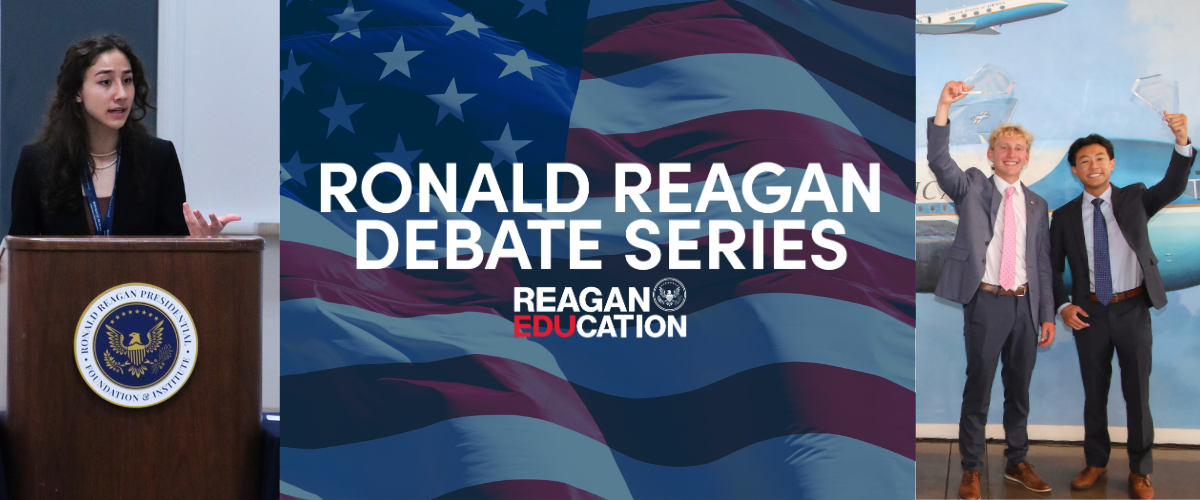
|
Student Opportunities
Ronald Reagan Debate Series
The Ronald Reagan Debate Series offers high school students (Grades 9-12) a dynamic platform to test their rhetorical abilities and compete at both regional and national levels. This year, they have two distinct options to participate. For those near Eureka, Illinois, there will be an in-person regional event on April 26, providing an excellent opportunity for face-to-face interaction and competition. Alternatively, participants can opt to compete online May 30-31, ensuring flexibility and access regardless of location.
By participating, students not only stand to win prestigious scholarships — including a chance to advance to the National Championship for a portion of $50,000 in scholarships — but also gain invaluable experience in civil discourse, critical thinking, and public speaking under the auspices of one of the nation’s most iconic presidential institutions. Teachers are encouraged to inspire their students to take part in this enriching and potentially life-changing experience. Register for the Ronald Reagan Debate Series.
|
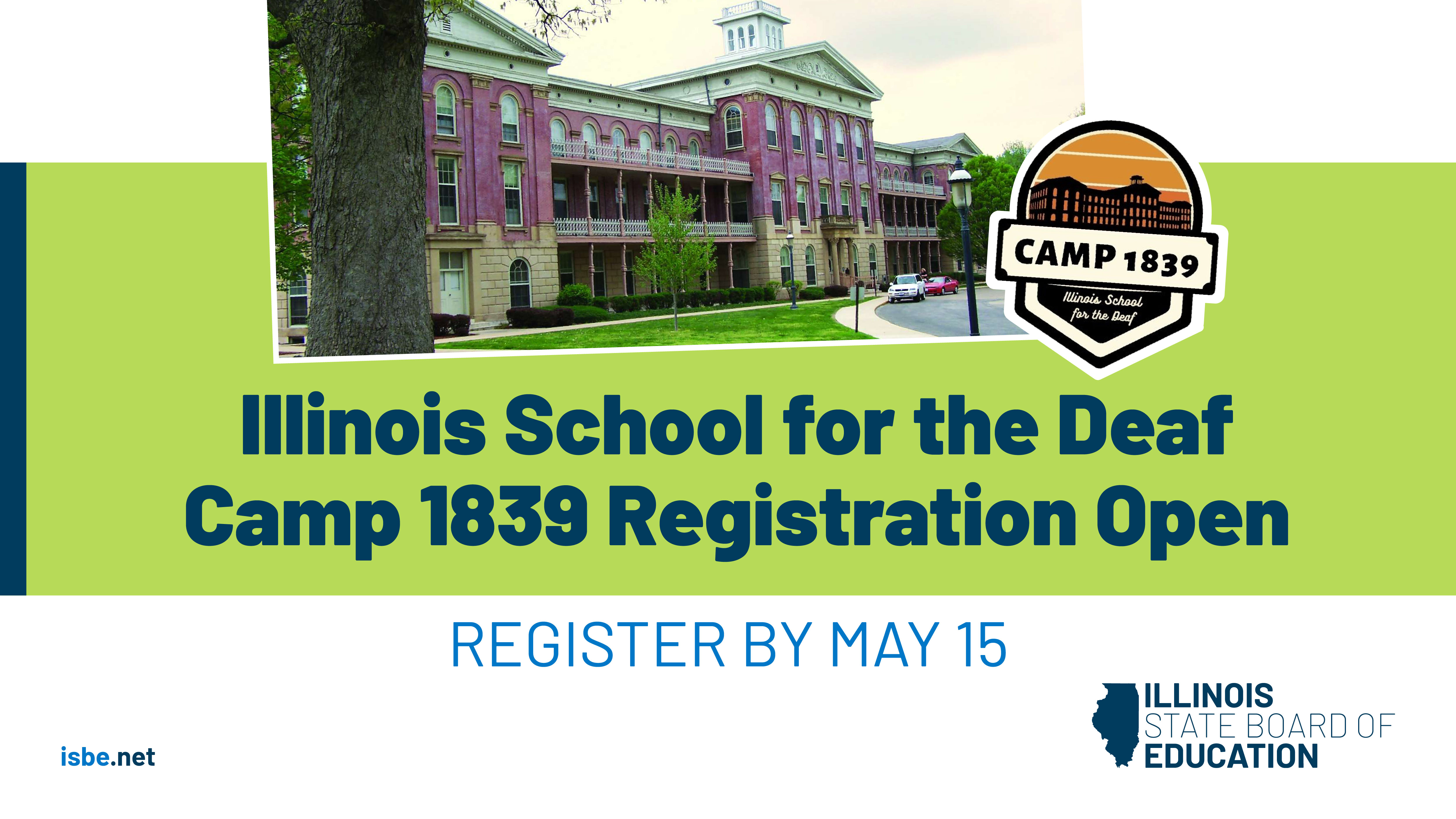
|
Illinois School for the Deaf Camp 1839 Registration Open
The Illinois School for the Deaf invites deaf or hard of hearing students entering Grades 4-9 in the 2025-26 school year to register for Camp 1839, scheduled for June 25-29. Campers will stay in the dorms and experience life as a student at ISD. Camp 1839 will provide a wide range of opportunities for campers to make new friends, develop lifelong connections, and experience:
-
Learning through play and STEAM activities.
-
Exploring American Sign Language and deaf culture.
-
Making a splash at the water park.
-
Playing sports.
-
Putting gaming skills to the test in friendly competition with their peers and more!
See the Camp 1839 flyer for more details. The deadline to register is May 15.
|
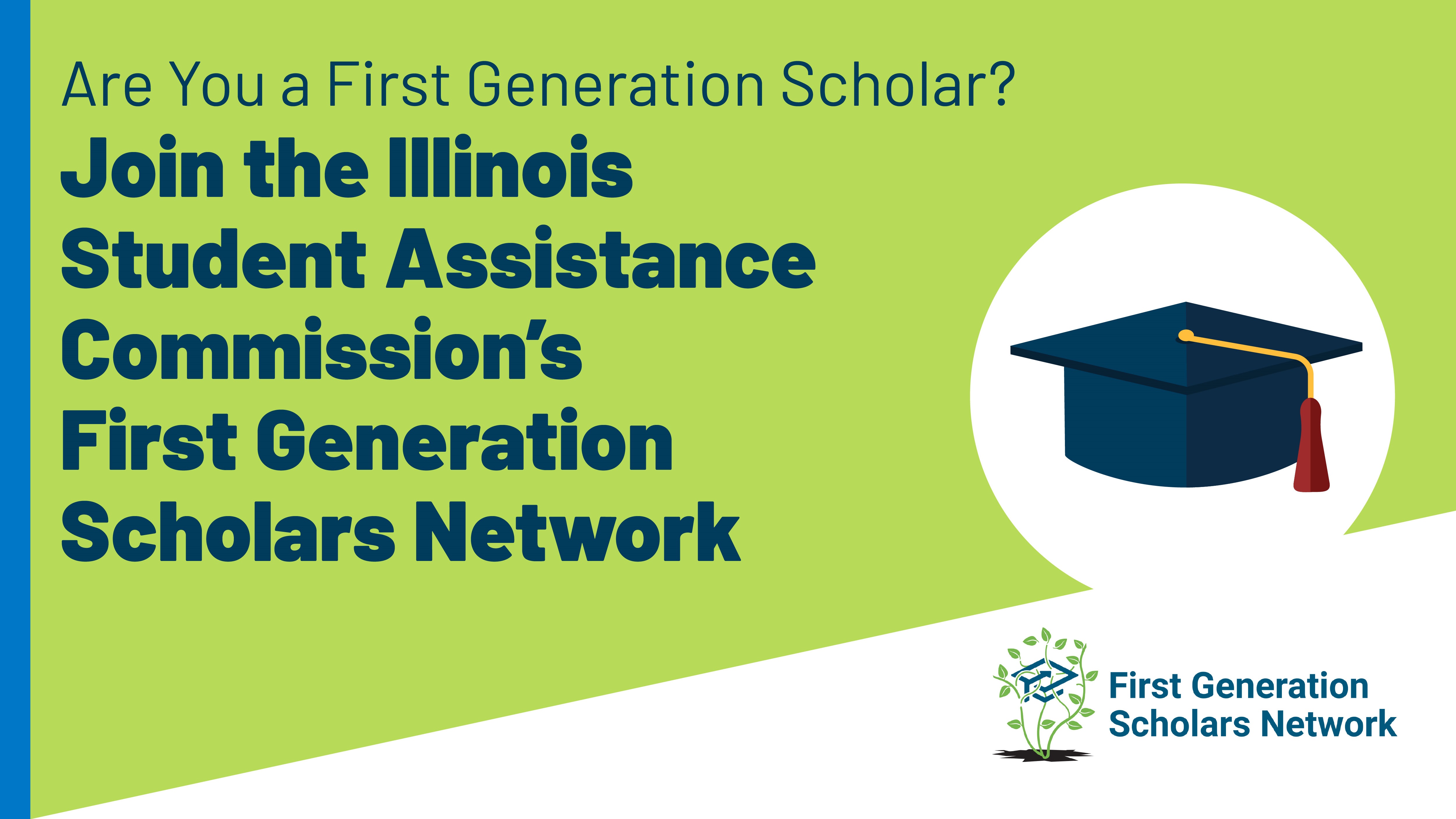
|
ISAC's First Generation Scholar
Please encourage your high school seniors who aspire to be the first person in their family to finish college to join the Illinois Student Assistance Commission’s First Generation Scholars Network (FGSN). The goal of FGSN is to connect first generation college students with one another so they can support each other through this network, and for FGSN students to receive additional support year-round from our ISACorps of near-peer mentors. Students can join by completing the online form on the FGSN webpage. Contact ISAC.FirstGen@illinois.gov for questions.
The Illinois Student Assistance Commission (ISAC) would also like to remind students about the “First Up Podcast.” Each episode offers informative conversation, advice, and stories about the challenges — and triumphs — that many first-generation college students and their families experience. Let your college-bound students know that season one and two episodes can be found on the “First Up Podcast” webpage.
|
Educator Opportunities
2025 Partner Plan Act Conference
The Illinois Action for Children Community Systems Statewide Supports (CS3) Team is thrilled to invite you to the 2025 Partner Plan Act Conference, “Equity from the Start: Interdependent Self and Community Care,” on May 6-8. The three-day virtual conference will feature a variety of workshops on community systems development, addressing key topics from increasing expanding cross sector partnerships in collaborations to building data infrastructure to advance equity.
Keynote speakers include Dr. Shawn Ginwright, a leading voice on trauma, healing, and youth empowerment, and Karen Walrond, attorney, speaker, and author who beckons people toward lives of integrity, advocacy, conviction, and joy. The conference will also feature Dr. Teresa Ramos, the first secretary of new the Illinois Department of Early Childhood.
Register for the 2025 Partner Plan Act Conference. It is free and open to the public.
|
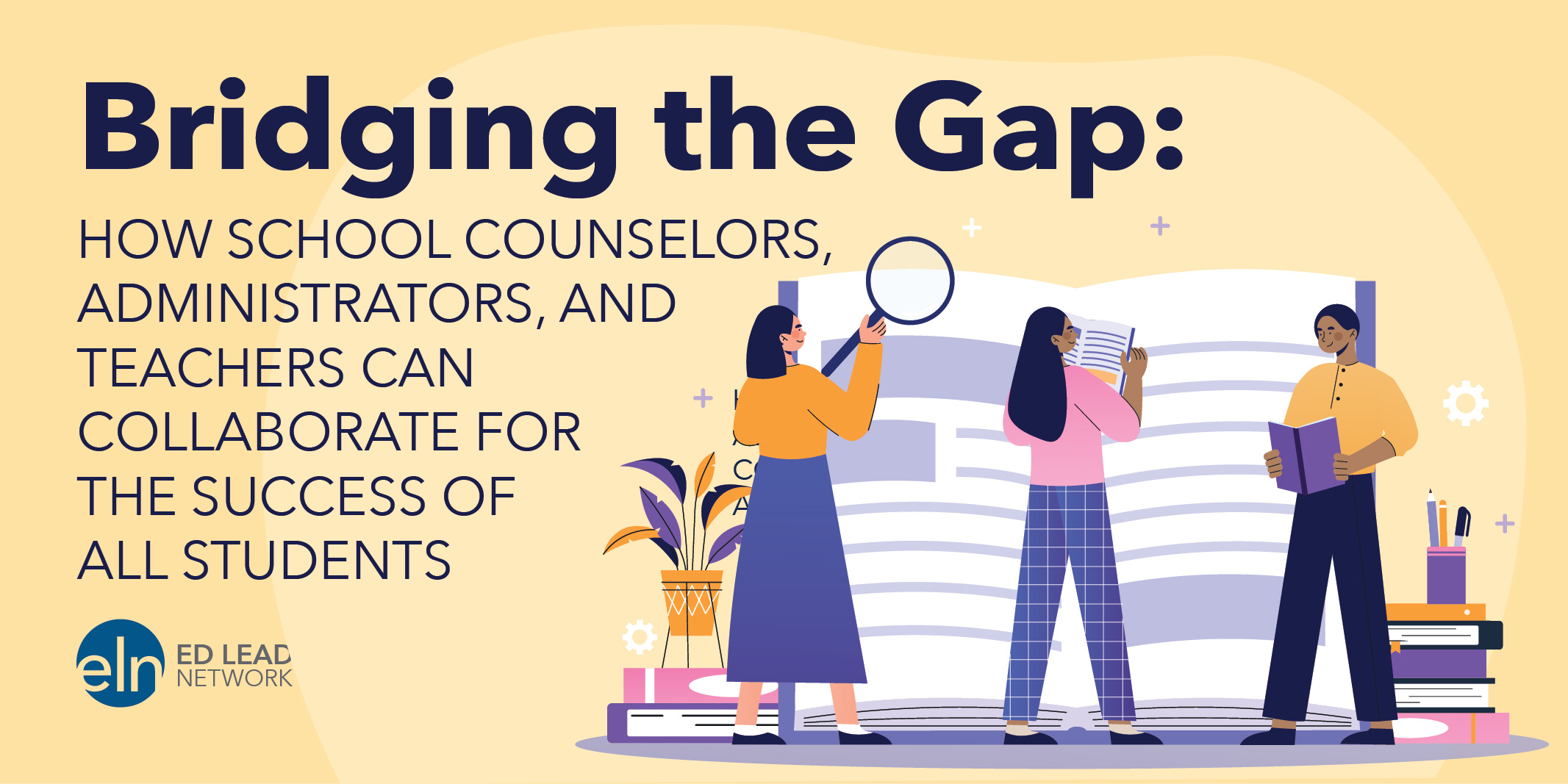
|
Ed Leaders Network
Bridging the Gap: How School Counselors, Administrators, and Teachers Can Collaborate For the Success of All Students
3-4 p.m. | April 29
This presentation will explore the vital role of school counselors in fostering student success by collaborating effectively with administrators and teachers. Presenter Patrick Wildman will highlight how counselors support academic achievement, social-emotional development, and career readiness through proactive communication, data-driven interventions, and a team-based approach. Strategies for building strong partnerships, addressing student needs holistically, and creating a positive school climate will be discussed. Attendees will leave with practical insights on maximizing collaboration to ensure the success of all students.
|

|
The Teacher Team Leader: Simple Habits to Transform Collaboration
3-4 p.m. April 22
Uncover the role, responsibilities, assumptions, and mindsets of effective teacher team leaders, plus explore a handful of simple, go-to moves, techniques, and strategies that will transform team collaboration. As a result of this experience, participants will:
-
Understand the three key responsibilities of the team leader in a Professional Learning Community.
-
Uncover assumptions and mindsets for successful team collaboration.
-
Explore a handful of simple actions that transform team functioning.
|
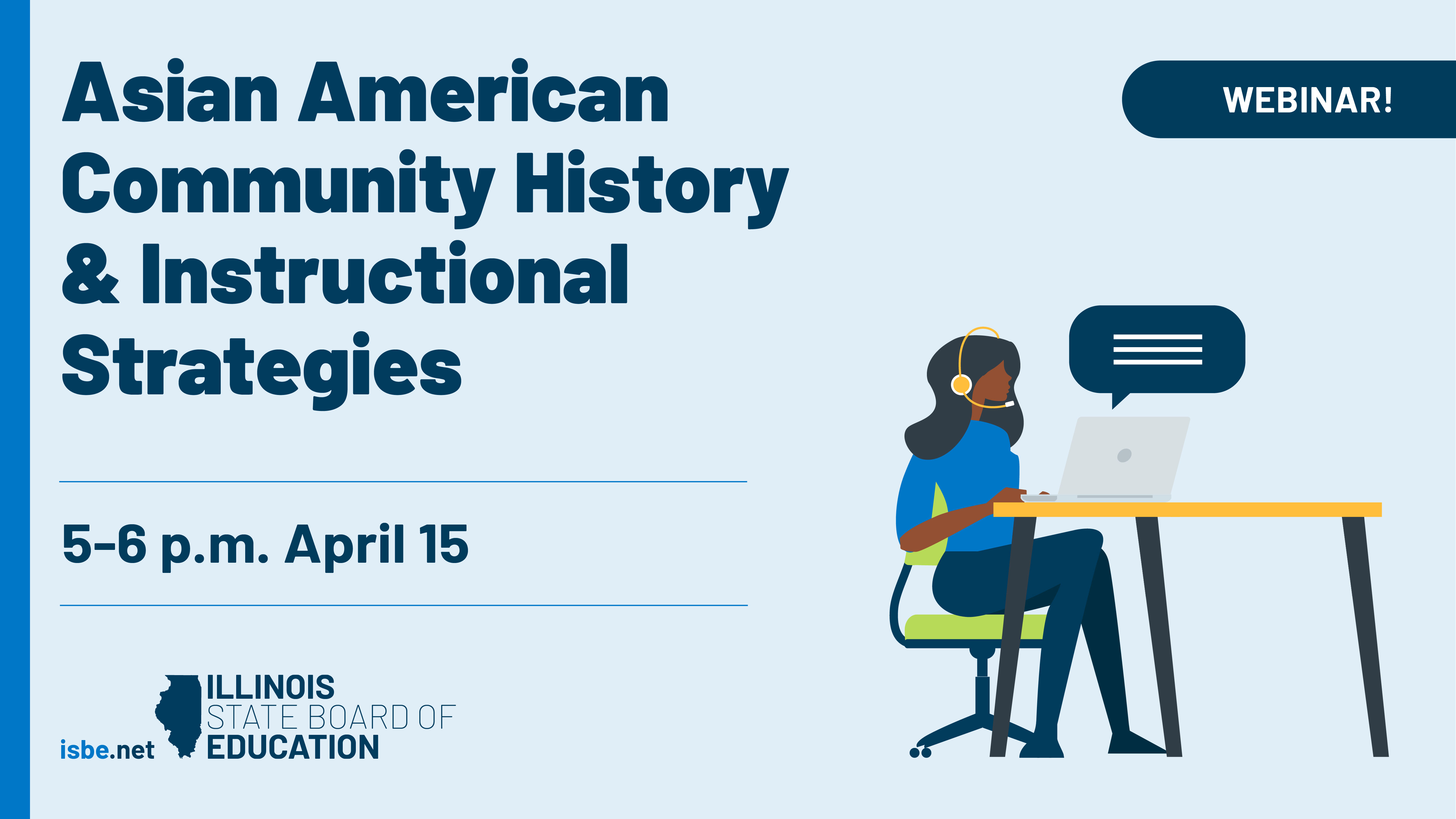
|
Asian American Community History & Instructional Strategies Webinar
Did you know that Illinois became the first state in the nation to mandate the teaching of Asian American histories in K-12 classrooms and libraries? The Teaching Equitable Asian American Community History (TEAACH) team from the University of Illinois Urbana-Champaign will host a webinar from 5-6 p.m. April 15 to cover the basics of Asian American community history and instructional strategies. Register for the TEAACH Spring 2025 Webinar. Illinois educators can earn one professional development hour for this event.
|
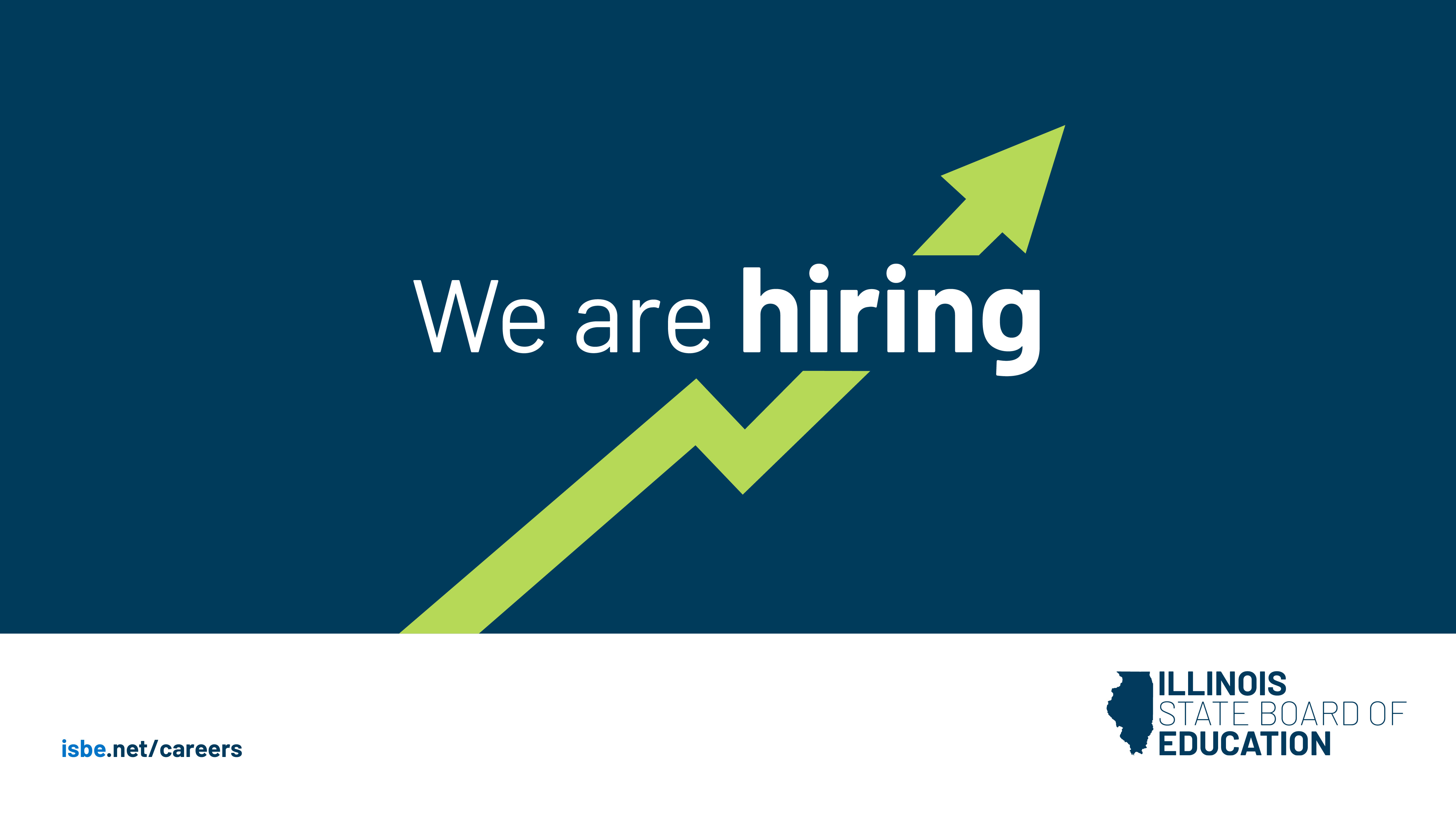
|
Featured ISBE Career Opportunities
|
|
|
|
|
|




|
The Illinois State Board of Education is the State Education Agency for Illinois. Our mission is to provide each and every child with safe and healthy learning conditions, great educators, and equitable opportunities by practicing data-informed stewardship of resources and policy development, all done in partnership with educators, families, and stakeholders.
Click here to change your Subscription Preferences. Click here to unsubscribe.
|
|
|
|
|